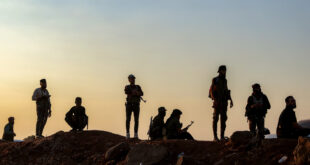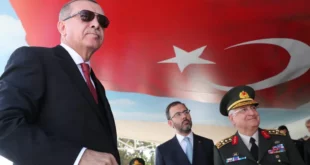SOUTHERN SHUNEH (AP) — Iran plans to lecture the United States during an upcoming meeting in Baghdad on what it said were mistakes that Washington made in its war on Iraq, Iranian Foreign Minister Manouchehr Mottaki said Saturday.
Mottaki also criticised the Arab Peace Initiative for resolving the Israeli-Palestinian conflict, saying it would flounder partly because Israel has no peace intentions.
“Looking at the history of peace initiatives, we had some 130 plans in the past 30 years, but none of them were realised because of the approach of the other side (Israel),” Mottaki said during a panel discussion at this Dead Sea resort, hosted by the Geneva-based World Economic Forum.
“Besides, we do not see any chance for the success of the Arab Peace Initiative because it fails to address fateful issues, like the capital of a Palestinian state and the right of return for some 5 million refugees,” Mottaki added.
The Arab peace plan, which was revived at an Arab summit last March, dominated discussions at the forum, which opened Friday. The conference, which groups some 1,000 world politicians and business leaders, is also addressing other crucial regional issues, such as improved education and economic prosperity, but has largely been overshadowed by spiralling violence in nearby Gaza and Iraq.
The Arabs have presented their initiative as an opportunity for a breakthrough, but so far the proposal has not gotten off the ground, with Israel speaking positively of it but rejecting key provisions. Still, Israeli Prime Minister Ehud Olmert promised King Abdullah this week that he would seriously consider the plan.
At Saturday’s politically charged discussion, which also hosted Afghan President Hamid Karzai, Mottaki fiercely defended Iran when the panel’s moderator said that successive US policies, including the Iraq war that toppled Saddam Hussein — Iran’s archenemy — have unintentionally helped Tehran increase its influence in the region.
“We don’t need any help,” Mottaki said. But he quickly realised his undiplomatic comment and said jokingly: “Some say that we’re speaking behind doors, which doors, I don’t know.” Iran’s top diplomat also said that Tehran had publicly warned Washington about its policy “mistakes,” especially regarding the invasion that toppled Saddam. “But they never listened” until recently, when a bipartisan US panel released the Iraq Study Group report which criticised the Bush administration for not engaging Iran and Syria in efforts to quell violence in Iraq, Mottaki said.
Mottaki said Washington requested a meeting with Iranian officials a year ago, but it never materialised because the US only had “propaganda purposes” in mind when it called for the event. But he added that Iran now hopes that the May 28 meeting in Baghdad “will be helpful to correct their (American) policies.” “We will tell them where they were wrong,” Mottaki added.
Both Iranian and American officials have said that the talks in Baghdad will be limited to the security situation in Iraq and will not delve into the diplomatic deadlock between the two countries over Iran’s nuclear programme. The US accuses Iran of secretly trying to develop nuclear weapons — charges Tehran denies.
Iran and the US have not had public bilateral meetings on a specific issue since Washington broke off relations with Tehran over the 1979 hostage crisis. Previous encounters have been at multilateral gatherings. The two countries held talks under UN auspices between 2001 and 2003 regarding Afghanistan.
The United States has accused Shiite-ruled Iran of helping train and arm Shiite militias and some Sunni insurgent groups in Iraq and has specifically accused Iran of helping insurgents obtain explosively formed penetrators, sophisticated bombs that are capable of piercing armoured vehicles. Iran denies the charges.
 Eurasia Press & News
Eurasia Press & News



